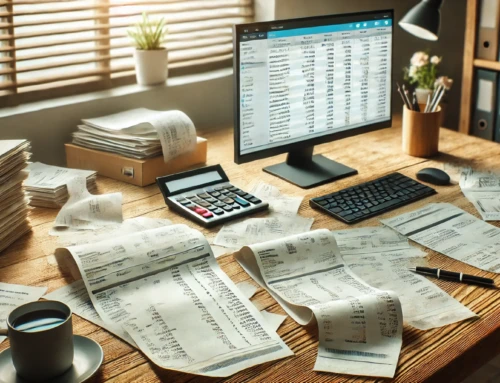
Cashflow is important for all businesses but especially so for those in construction, where jobs can be larger, payment terms can also be long and supplier terms short.
This blog outlines the steps you can take to make sure that your Construction Business does not run out of cash, including:
- Forecasting cash
- Taking deposits & stage payments
- Pricing correctly
- Chasing retentions
- Checking customers’ ability to pay
- Negotiating with suppliers
- Getting the VAT right
- Go gross with CIS
- Forecasting cash
Cash forecasting is essential for Construction Businesses who are facing potential cash shortages. It should be undertaken regularly and involve the MD, the bookkeeper/credit controller, and the job managers. If cash is tight everyone needs to understand this reality and base their decisions on it. Decisions need to be made on this basis.
A cash forecast can be as detailed as you like and, in its simplest form, should only take an hour to complete and update.
The key features of a cash forecast are:
- An opening bank balance.

- Cash in – money received from your debtors etc.
- Cash out – cash paid to creditors etc.
- Typically, a list of regular payments is included so you can highlight major outgoings.
- Cash paid out for VAT and other taxes
- A closing balance.
For more information read our cash forecasting guide and get our FREE cash forecasting template here.
- Taking deposits & stage payments
Deposits are a great way to ensure your upfront costs are covered – but business owners are often too worried about asking for them. In many construction contracts, deposits are simply not an option but in the absence of a contract, or if your client is the end user, then a deposit is often acceptable.
The best strategy here is to present this as the normal way you do business. We have seen clients, who had always struggled for cash, transform their cashflow simply by asking their customers for a deposit. If this is asked at the correct time in the sales process, then this is often not a problem.
If a deposit is not possible then the other option is staged payments – ask for payments related to the % of work complete to cover labour and materials and apply for these on a timely basis – this is often more applicable in longer contracts.
- Pricing correctly
Pricing jobs is notoriously difficult in construction, with many simply guessing the price or basing it on previous experience or even out-dated material costs. Pricing is particularly difficult at the moment, with the cost of materials seemingly increasing all the time, making it harder to give your customer a final cost and not risk being out of pocket, especially if your job is booked up months in advance.
The simplest method is to price based on cost and then add a mark up to cover overheads, material prices increase and a profit element.
For example, list out the cost of materials and labour for every element of a job. Include every possible cost including fuel, parking, skips etc.
If you are employing subcontractors to do the work, then gather in their prices before issuing your price. Don’t guess because this will come back to haunt you.
Then mark up the costs by a % to cover your overheads and provide for profit.
Try to avoid a fixed price if possible, or if this is not possible, give as much detail as you can in your price so that if there are variations then these can be billed with no ambiguity. It is also worth putting a clause in your quote, to say how long the price will remain valid for.
And, as detailed above, ask for a deposit and arrange stage payments where possible.
- Chasing retentions
Retentions are an amount retained by the client to cover snags or to ensure proper completion of a job. They are often a necessary evil in the construction industry. They are notoriously difficult to collect.
Retentions are often due to be paid 12 months plus after a job has been completed, but by this time the surveyor or QS on the job has often moved on and getting the retention payment signed off can be difficult.
Many companies write these retentions off, but this should never be the policy since they are, in fact, pure profit. So, chasing and collecting retentions is an important part of the cashflow for a construction company.
- Checking customers’ ability to pay
In the excitement of new orders, checking that the customer can afford your services is often overlooked but a customer who can’t, or won’t, pay is not worth working for. Unfortunately, it is extremely difficult to assess this but the least you can do is require a deposit from customers, run a credit check and if that is not favourable then ask for payment up front.
There is a specialist credit checking agency called Top Service – who help construction companies with credit checking and debt recovery.
- Negotiating with suppliers
Suppliers with tough payment terms can be a major cause of cashflow headaches for construction companies. The first thing to do is open accounts with suppliers and if you spend a lot with them, negotiate longer payment terms and/or higher account balances.
If you have a good year, then send your accounts to suppliers to give them comfort that your business is stable. If you don’t ask suppliers, you will not get better terms – it is much better to agree terms with suppliers rather than just stretching terms as this could affect your credit rating.
- Get the VAT right
Since 1st March 2021, if you are CIS registered and VAT registered you no longer have to pay VAT to customers if they are also CIS and VAT registered and are providing an onward supply, e.g., a main contractor on a large-scale house building project. You also no longer recover VAT if your suppliers are CIS and VAT registered. This has huge implications for cashflow.
For those with end user clients they will still collect the cash for VAT and not have to pay it to their suppliers, so cashflow will be boosted in between VAT returns and VAT payments will be higher.
For those with VAT and CIS registered suppliers and customers, cashflow will be negatively impacted as they are not collecting the VAT from customers but would be paying VAT on any material purchases. Ultimately, cashflow will be smoothed out but it does have implications to be aware of.
- Go Gross CIS
If you operate under the CIS scheme and have tax deducted from you by your contractors, then applying for gross CIS status will give you a short term cashflow boost. Gross status means you won’t have a % deducted by the contractor before you get paid, but it does mean you could have a tax liability whereas before you were in refund positions.
The positive effects of cashflow are that you will get 100% of your outstanding invoices and must pay the tax later (this is similar to how most businesses operate.)
In Summary
Cash is like oxygen, without it you’re dead! There is very little you can do. Construction is unforgiving for businesses with cashflow problems.
So, protect your cash and follow the content of this factsheet to ensure that your construction business has as much cash as it needs.






